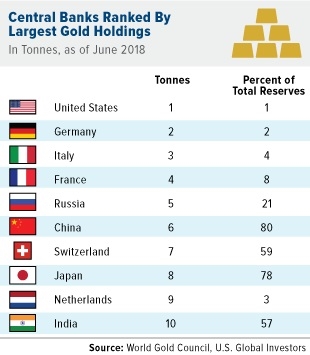During an outbreak of an infectious disease, there is no worse scenario than a pandemic. This is the name of the situation in which the epidemic spreads outside the country.
The more civilized people began to build cities, lay trade routes and wage wars with other cities, the more likely pandemics became. Below we list the worst pandemics in world history.
10. The Athenian plague - 430 BC
 The exact number of victims is unknown, only in Athens - 30 thousand people.
The exact number of victims is unknown, only in Athens - 30 thousand people.
The earliest recorded pandemic occurred during the Peloponnesian War. After the disease passed through Libya, Ethiopia and Egypt, she overcame the Athenian walls that the Spartans besieged. Because of her, two-thirds of the population of Athens died.
Symptoms of the Athenian plague included fever, thirst, bloody inflammation of the throat and tongue, and redness of the skin. The disease, presumably typhoid fever, significantly weakened the Athenians and contributed to the victory of the Spartans.
9. The Plague of Justinian - 541 AD
 The number of victims is 25 million people in Europe and 66 million people in the East.
The number of victims is 25 million people in Europe and 66 million people in the East.
One of the most terrible diseases in the history of mankind first appeared in Egypt, then spread throughout Palestine and Byzantium, and then throughout the Mediterranean.
This plague is credited with creating an apocalyptic atmosphere that stimulated the rapid spread of Christianity.
It is believed that the Justinian plague is the first large-scale appearance of the bubonic plague. She spared neither the powers that be, nor even the saints, among whom was the founder of Irish monasticism, Saint Finnian of Clonard.
8. Leprosy (leprosy) - Middle Ages
 The exact number of victims is unknown.
The exact number of victims is unknown.
Although leprosy was known in the days of Hippocrates and is mentioned in the Bible, it acquired pandemic status in the Middle Ages in Europe. As a result of the widespread spread of this disease, more than 19,000 leprosoria were built - institutions focused on the maintenance of patients with leprosy.
This slowly developing bacterial disease, which causes wounds and deformities, was considered God's punishment, which only more averted healthy people from the victims of leprosy. They were often expelled from the settlements, and ritually funeral during their lifetime.
Currently, leprosy is successfully treatable with antimicrobial therapy. In the 21st century, there are less than 500 thousand leprosy patients on Earth, most of whom live in Indonesia, India and Brazil.
7. Black death - 1346-1353
 The death toll is 75–200 million.
The death toll is 75–200 million.
The second major outbreak of bubonic plague in history may have begun in Asia and “traveled” west with the merchants. In 1347 AD, when plague patients arrived at the Sicilian port of Messina, the disease quickly spread throughout Europe. There were so many dead that many corpses remained rot on the ground and created a constant stench in the cities.
England and France were so incapacitated by the plague that they declared a truce in the Hundred Years War. The British feudal system collapsed when the Black Death changed the economic circumstances and demographics of all of Europe.
6. Smallpox - 1520
 The total number of deaths is unknown.
The total number of deaths is unknown.
For centuries, smallpox has been one of the main pathogenic threats to the populations of Europe, Asia and Arabia. She claimed the lives of every 3 out of 10 infected people. And the first European researchers brought the smallpox virus to the New World, whose inhabitants did not have immunity from this disease.
Smallpox was one of the main causes of the death of the Aztec empire. And in the Americas, it took about 100 years to kill about 90 percent of the indigenous population. In Mexico, the population shrank to one million people from 11 million to the European conquest
Studies conducted in 2019 led to the conclusion that the deaths of about 56 million Native Americans in the 16th and 17th centuries, mainly due to smallpox and other diseases, could change the Earth’s climate. The growth of vegetation on previously cultivated lands pulled more CO2 from the atmosphere and caused cooling.
Interesting fact: smallpox was the first viral epidemic stopped by a vaccine. In 1980, the World Health Organization stated that smallpox had been eradicated worldwide.
5. The first pandemic of cholera - 1817
 Presumably claimed the lives of several million people.
Presumably claimed the lives of several million people.
Until the 19th century, cholera was limited to the borders of India. And even the active colonial policy of Britain, the migration of people and the growth of international trade are not able to explain the explosive nature of the spread of cholera around the world. The causative bacterium is believed to have mutated due to abnormal weather conditions in 1816.
Spreading through water and food contaminated with feces, the cholera vibrios were transmitted to British soldiers who brought them from India to Spain, Africa, Indonesia, China, Japan, Italy, Germany and America, where 150,000 people died in total.
Affected by the pandemic and the Russian Empire, where, according to official figures, a little more than 197 thousand people died. Cholera, nicknamed by the Russians "dog death", led to an unprecedented restriction of movement, which gave rise to cholera riots.
In St. Petersburg, crowds of mortally frightened people were caught and beaten to the death by foreign doctors, who were accused of bringing infection to Russia to plague the Russian people. It took the intervention of the police and the military to stop such popular atrocities.
The vaccine was created in 1885, but cholera pandemics continued until 1975.
4. The Third Pandemic of the Plague - 1855
 The bubonic plague claimed 15 million lives.
The bubonic plague claimed 15 million lives.
Starting from the Chinese province of Yunnan and moving to India and Hong Kong, the bubonic plague was gathering its gloomy harvest for the third time.
India suffered the most significant losses, and the epidemic of a terrible disease in this country was used as an excuse for the repressive policies of England, which provoked an uprising against the British. In literature, it is known as the First War of Independence, or the "Separate Rise".
One of the worst pandemics in the world was considered active until 1960, when the number of cases fell below a couple of hundred.
3. Spanish flu - 1918
 The total number of victims is 50 million people.
The total number of victims is 50 million people.
The most massive influenza pandemic in history was first rampant in Europe, the United States and parts of Asia, and then quickly spread throughout the world.
At that time, there were no effective drugs or vaccines to treat this strain of influenza virus. The reports of the influenza outbreak in Madrid in the spring of 1918 led to the pandemic called the “Spanish flu” or, more briefly, the “Spanish flu”.
In Russia, 3 million people, or 3.4% of the country's population, died from the Spaniard.
The threat of Spanish flu disappeared only by the summer of 1919, when the majority of those infected either recovered or died.
2. HIV / AIDS - 1981
 Already 35 million people with AIDS have died since its discovery in 1981.
Already 35 million people with AIDS have died since its discovery in 1981.
“Yes, no one dies of AIDS,” the reader may object. Indeed, AIDS itself, a syndrome of acquired immune deficiency caused by the human immunodeficiency virus (HIV), does not kill anyone.
They kill oncological and other diseases that arise in humans due to the fact that AIDS destroyed the immune system, and the body could not fight the infection that penetrated into it.
A curious fact: initially, the disease caused by HIV was called the “Four G disease”, since it was found in:
- Haitians or guests of the island;
- homosexuals;
- heroin addicts;
- hemophilicists.
However, doctors later found out that AIDS occurs not only in people who practice homosexual relationships. Therefore, in 1982, the term AIDS (AIDS) was introduced into circulation, which remains relevant until now.
1. Wuhan coronavirus - 2019
 As of April 15, 2020 129,976 dead.
As of April 15, 2020 129,976 dead.
We live in an interesting time and even are direct spectators and participants in how the coronavirus changes the world.
COVID-19 is caused by a new strain of 2019-nCoV, which has not previously been detected in humans. Symptoms of the disease, including breathing problems, fever and a debilitating dry cough, can lead to pneumonia and death. In the “red” risk zone for coronavirus are older people.
Since vaccines for the new virus have not yet been created, it has spread outside of China, and by mid-April it was recorded in 183 countries of the world. Currently, coronavirus is, if not the worst pandemic in the world, then at least the most hype.
In the number of infected, the United States leads, with 607,670 cases already, Russia (24,490 cases of the disease) is in 15th place.












